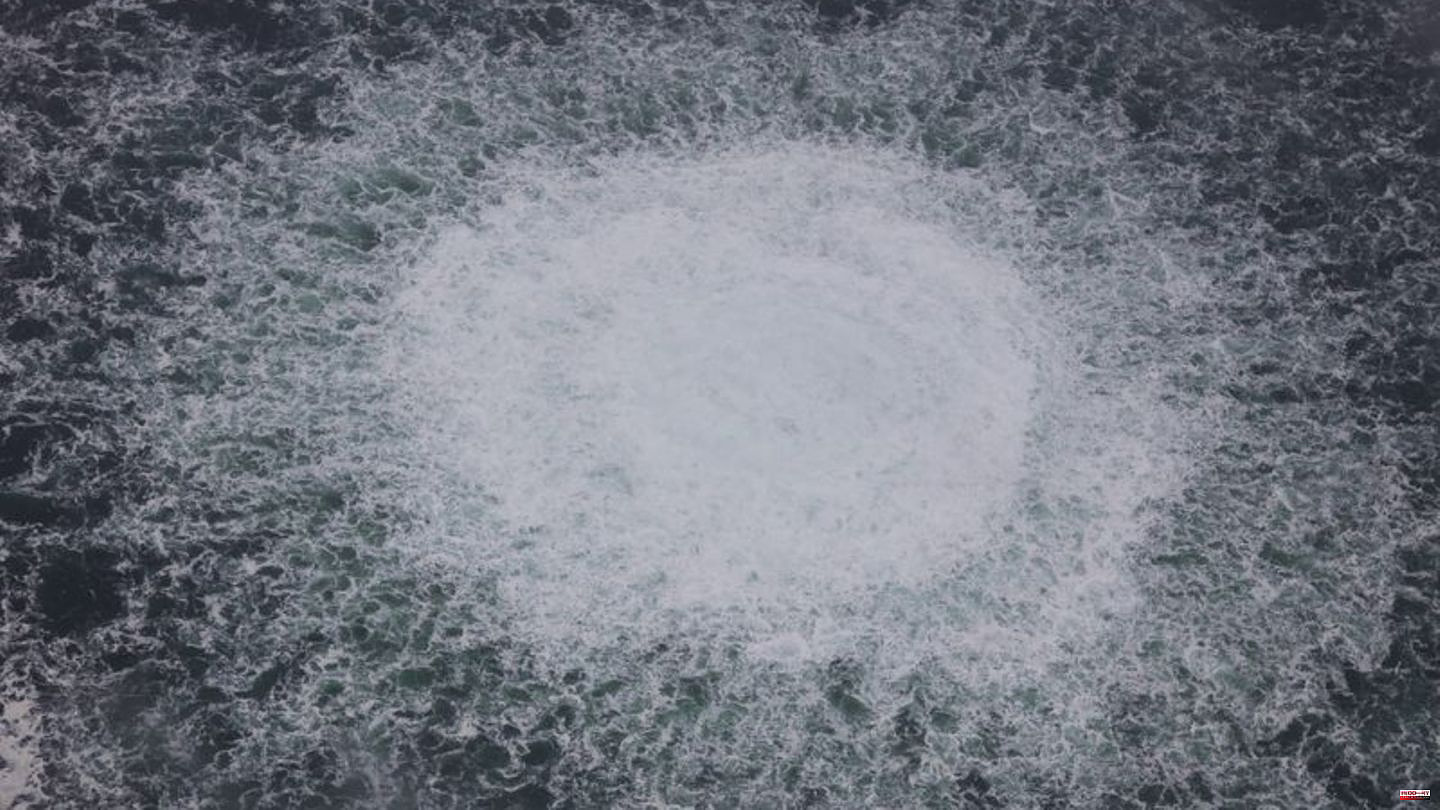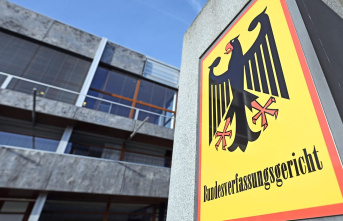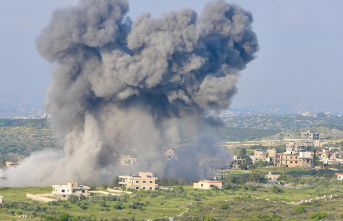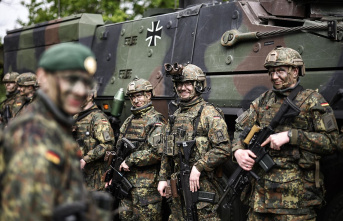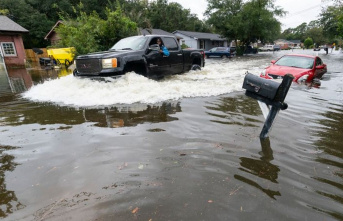According to Denmark and Sweden, at least two deliberate explosions with the force of an explosive charge probably weighing several hundred kilograms are responsible for the leaks in the gas pipelines in the Baltic Sea. This emerges from a letter from the two Scandinavian countries on the leaks in the Nord Stream 1 and 2 gas pipes, which should serve as the basis for an emergency debate scheduled for Friday in the UN Security Council (from 9 p.m. CEST).
Seismological institutes measured magnitudes of 2.3 and 2.1, which "probably corresponds to an explosive charge of several hundred kilograms," according to the letter dated Thursday.
A total of four leaks have been found on the Nord Stream 1 and 2 pipelines, which run from Russia through the Baltic Sea to Germany, since Monday night. According to the current status, there is one known leak on both Nord Stream 1 lines and two on one of the Nord Stream 2 lines. Gas has been bubbling up to the surface of the water above the leaks for days. NATO and the EU assume sabotage.
Deliberate action likely
This assumption is supported by the knowledge of the Scandinavians. All available information indicated that the explosions were the result of a premeditated act, they wrote in their letter. Two leaks each occurred in the exclusive economic zones of Denmark and Sweden. The rising gas covered areas with a radius of between 200 and 900 meters on the surface.
At the Security Council meeting, at Russia's request, there should first be a debate on the leaks. A resolution should then be debated condemning the Russian annexation of Ukrainian territories as a breach of international law and calling on Russia to withdraw immediately. However, it is expected that Russia will veto it.
The Russian leadership tried to portray the United States as the prime suspect in the damaged pipelines case. It is "obvious that the main beneficiary, especially economically, is the United States," Secretary of Russia's National Security Council Nikolai Patrushev said, according to the Interfax news agency.
Russia speaks of "terrorist attacks"
The head of Russia's foreign intelligence service, Sergey Naryshkin, claimed that Moscow has material pointing to a "Western lead" in the organization and execution of the "terrorist attacks" on the Nord Stream pipelines. He accused the West of "doing everything to hide the real perpetrators and organizers of this international act of terrorism".
Vice Chancellor Robert Habeck does not believe Russian statements about the leaks. "The only truth that comes out of Russia is a lie," he said in Brussels on Friday when asked if he believed Russia was not involved in a possible sabotage of the pipelines. "I don't know who carried out the explosions. But to say: 'It wasn't us' - that's not an answer that I trust," emphasized the Green politician. Investigations were underway. You should wait and see before coming to a verdict, he said.
Worry about the infrastructure
Meanwhile, experts warned of the danger of further attacks on Europe's energy supply and other important components of the infrastructure. "We are in a fossil energy war. The means that are now being chosen are drastic," said energy expert Claudia Kemfert to the Phoenix television station. According to the head of the Energy, Transport and Environment department at the German Institute for Economic Research (DIW), one must expect attacks on all possible areas of energy supply. Specifically, she mentioned the danger of cyber attacks on nuclear power plants.
According to a report by "Spiegel", just a few months ago, a research team had warned the EU Parliament about abuses in the protection of important underwater infrastructure. The EU is lagging behind here. Accordingly, warnings were given, among other things, against attacks with explosive charges on underwater infrastructure. Both China and Russia were named as possible opponents. At EU level, however, there are hardly any measures or programs that directly address the issue, the magazine quoted from the report prepared for the subcommittee on security and defense.
Swedish Coast Guard Swedish Maritime Authority Danish Maritime Authority

